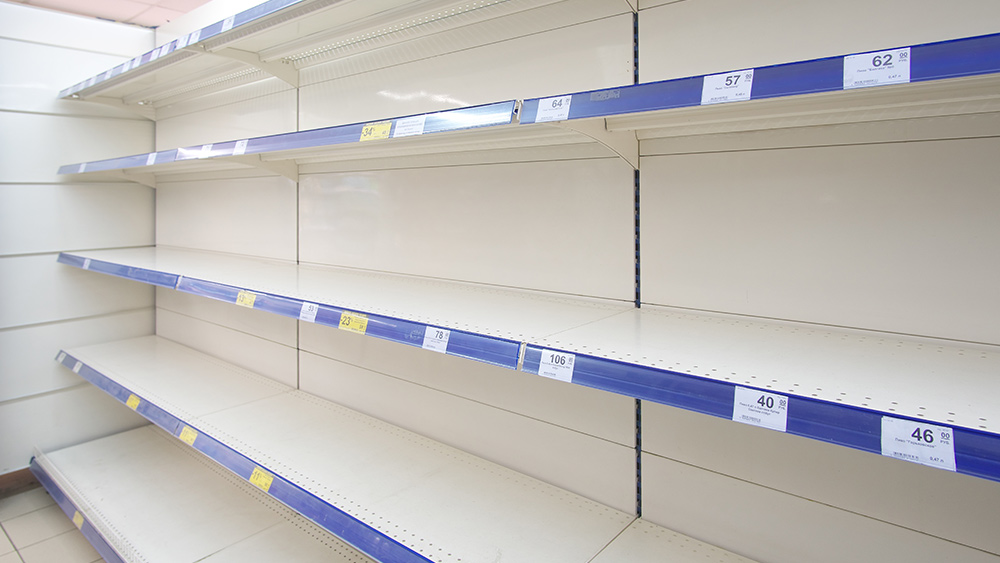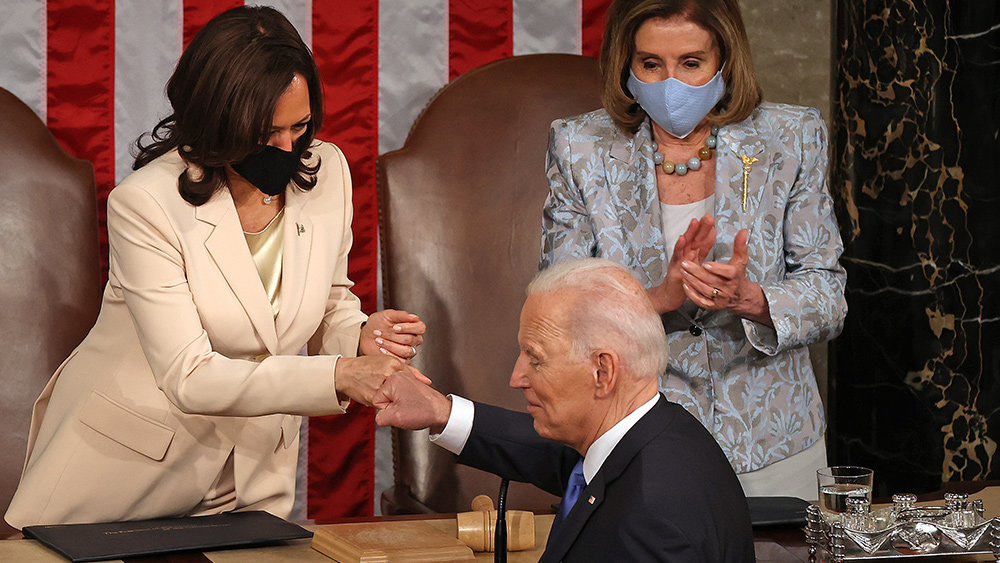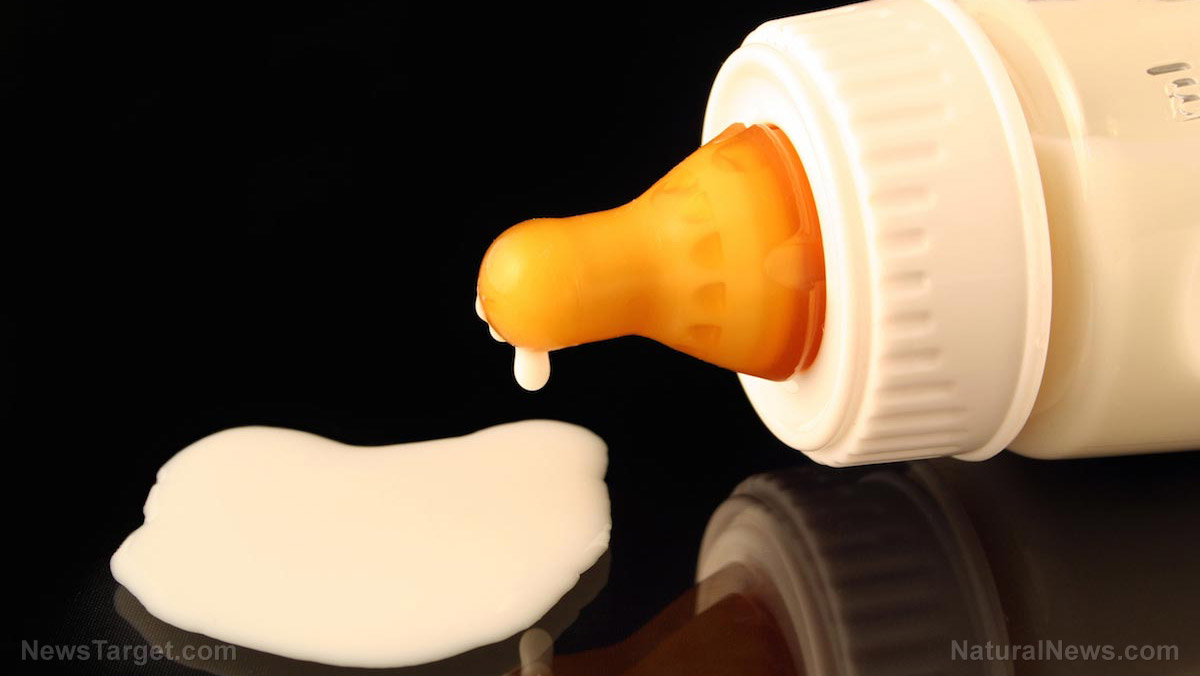FDA, Abbott Labs both to blame for the ongoing baby formula shortage
05/30/2022 / By Ramon Tomey

The Food and Drug Administration (FDA) and nutritional products company Abbott both took responsibility for the ongoing baby formula shortage during a congressional hearing.
Officials from the FDA and Abbott executives testified before lawmakers on Wednesday, May 25, at a House Committee on Energy and Commerce hearing. The latter’s Subcommittee on Oversight and Investigations convened the inquiry that sought to uncover more about the ongoing shortage of infant formula.
Abbott North America President for Nutrition Christopher Calamari attended the hearing, alongside two other executives from Reckitt and Gerber. Three FDA officials were in attendance: Commissioner Dr. Robert Califf, Deputy Commissioner Frank Yiannas and FDA Center for Food Safety and Applied Nutrition Director Susan Mayne.
Subcommittee chairwoman Rep. Diana DeGette (D-CO) denounced the baby formula shortage as “unacceptable,” putting some of the blame on Abbott. She also rebuked the FDA, adding that it needs additional resources to ensure utmost food safety.
Califf acknowledged DeGette’s remarks, admitting that the agency did not act fast enough when it became clear that there was a food safety problem at Abbot’s infant formula production facility in Sturgis, Michigan. The FDA ordered the closure of the plant in February 2022, after at least two infants died of Cronobacter sakazakii infection from contaminated baby formula.
“It was too slow and there were decisions that were sub-optimal along the way. Our oversight is critical, but a return to normal will only occur when Abbott takes the steps to resume production in a safe manner,” the FDA commissioner said.
Calamari, meanwhile, extended apologies on behalf of his company for the ongoing crisis.
“I want to express our extraordinary disappointment that this situation has occurred and our dedication to ensuring that it is addressed as soon as possible. To all of the families who depend on us for a reliable supply of formula – we let you down. We are deeply sorry and are committed to making sure that a shortage like this never happens again,” the Abbott executive said in his opening remarks.
Abbott vows to improve baby formula manufacturing
The FDA said in a prepared testimony that investigators found serious cracks in spray dryers at the Sturgis facility. They also found water leaks and condensation, which serve as key risk factors for C. sakazakii infections.
FDA investigators also found that Abbott employees were not trained on proper handwashing techniques. The company also failed to ensure that surfaces that came into contact with baby formula were maintained to prevent contamination. According to the Centers for Disease Control and Prevention, the pathogen can taint baby formula if it “touches a contaminated surface in the manufacturing environment.”
According to the Abbott executive, the firm has taken steps to improve safety conditions at the affected plant. These include the installation of non-porous sanitary floors that can easily be cleaned, more product testing and enhanced monitoring of areas that do not come into contact with products.
“We will continue to look for new ways to improve because operating a clean and safe plant is a job that requires constant vigilance.” (Related: White House agrees to reopen Abbott Laboratories’ Michigan facility following recall of contaminated baby formulas.)
In line with this, Calamari told lawmakers that Abbott plans to resume operations at the Sturgis plant in the first week of June. However, he added that getting baby formula back on store shelves will take several weeks.
“By the end of June, we will deliver more product in [that month] than we did in January, before the recall. And from there, we’re going to continue to sustain those efforts.”
While the Sturgis plant remains closed, Calamari outlined Abbott’s efforts to alleviate the shortage. He shared that the company is airlifting millions of cans of baby formula powder from an FDA-registered plant in Ireland. Abbott is also establishing a $5 million fund that seeks to aid affected families with medical and living expenses.
Watch Rep. Dan Bishop (R-NC) blaming the FDA for the baby formula shortage below.
This video is from the NewsClips channel on Brighteon.com.
More related stories:
Biden sends baby formula to illegals at border while grocery stores run dry.
Sources include:
Submit a correction >>
Tagged Under:
Abbott, baby formula, big government, Christopher Calamari, congressional hearing, Cronobacter sakazakii, FDA, food science, grocery, hunger, infant formula, infant's health, infections, outbreak, Robert Califf, scarcity, shortage, starvation, Sturgis plant
This article may contain statements that reflect the opinion of the author
RECENT NEWS & ARTICLES
COPYRIGHT © 2017 GROCERY NEWS


















